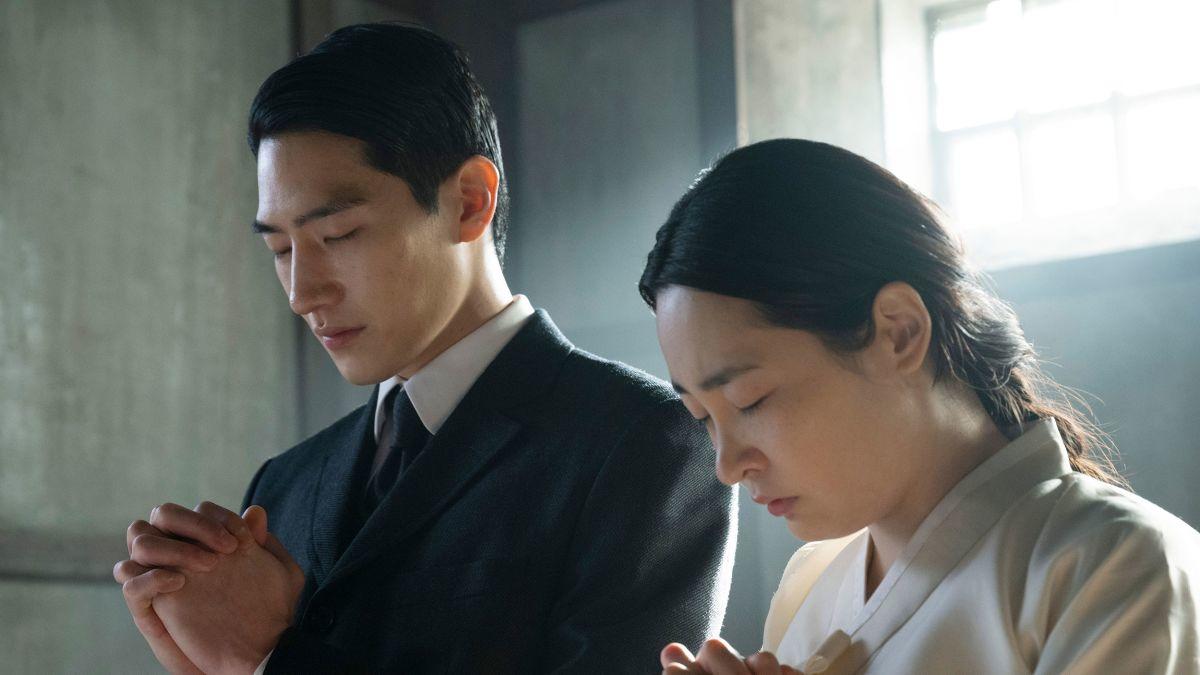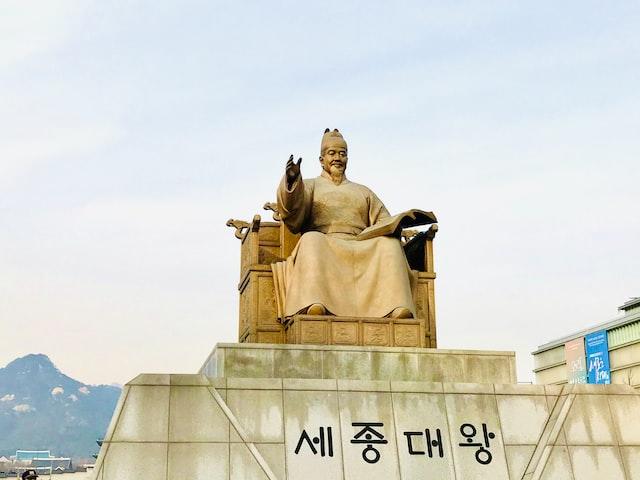If you have had the opportunity to travel to different parts of South Korea like Jeju Island or Busan, you'll probably notice this.
The Korean that the locals speak there may sound slightly different from what you usually hear in standard Korean dramas.
For instance, you may have learnt that word for "puppy" in standard Korean is 강아지 (kang ah-ji), but it is commonly known as 강생이 (kang saeng-i) in the Jeju dialect.
But even if they speak in different accents, Koreans from various locations will eventually come to understand each other because they all learn the same standard Korean pronunciation, grammar and sentence structure in school.
The Hangeul system plays a big role to make this happen.
In this article, we will review some facts about the Korean language and take a look at how you can learn Korean more effectively.

Can You Still Use The Standard Korean Speaking And Writing System If You Visit North Korea One Day?
If you have paid enough attention to international news or if you have watched the hit drama, Crash Landing On You, you'll know that North Korea constitutes the Northern half of the Korean Peninsula.
Technically, the people in North Korea do share similar cultures and languages as those in South Korea.
When you visit North Korea today, you will certainly come across the basic Korean alphabet. But instead of addressing it as the Hangeul system, it is known as the Chosungul (조선글) in North Korea.
Certain letters and digraphs are pronounced differently in the Chosungul and there could be a slight difference in the sorting orders of the vowels and initial consonants too.
In terms of pitch and pronunciation, the South Korean pronunciation is based on the dialect that is spoken in Seoul whereas the North Korean pronunciation is based on the dialect that is spoken in Pyeongyang.
To find out more about how and why they are pronounced differently, you can refer to this list of Youtube videos:
- 3 Main Differences between North and South Korean Language Pt. 1 [Channel: KOREA NOW]
- North and South Korean Language Difference in Vocabulary & Efforts to Minimize Them Pt. 2 [Channel: KOREA NOW]
- North Korean vs South Korean Dialects [Channel: Learn Korean with GO! Billy Korean]
- Is the North Korean language different from South Korean? (Kdrama "crash landing on you") [Channel: MyLangs ]
Find out the most practical tips to master Korean as a beginner.
Is It Very Difficult To Learn The Korean Alphabets?
Coming back to the Hangeul system, let's talk about the history behind the Korean alphabet that you are about to learn during your Korean language lessons.
The Hangeul system is officially created and introduced by King Sejong, the fourth monarch of the Joseon dynasty in 1446. Previously, the Joseon Korean society was used to reading and writing in Sino-Korean Hanja (classical Chinese system), a privilege that was enjoyed by the upper class and not the general public. It was also relatively more complex.
The introduction of the Hangeul system paved the way to improve literacy and allowed everyone from the richest to the most common commoner to read and write Korean easily.
So, this is a reminder that you can be a master of the Korean alphabet system too! Let's begin with some solid steps.
Step 1: Start by memorizing the consonants and vowels
Get your pencils, pens and notebooks ready to joy down all the 24 basic letters and diagraphs in Hangeul. Go through them multiple times until you can write them down correctly without referring to the original text.
Once you have mastered both consonants and vowels, you can then proceed to form meaningful words that you usually come across in your daily routine.
Step 2: Learn about the right way to write syllables (horizontally or vertically)
Time to take things to the next level.
Learn how to write the right consonant and vowel combinations horizontally and vertically when you are writing each Korean syllable.

Photo by sq lim on Unsplash
Step 3: Master the right pronunciation for each alphabet and form them together
The moment you can write each syllable stroke accurately, it's time to practice the right way to pronounce them.
Depending on your preferences and convenience, you can download the audio files of the Korean reference books that you have, listen to Korean language learning podcasts or continuously watch some Korean tutorial lessons on websites or Youtube to get used to the right Hangeul pronunciation.
Don't forget to check out these fantastic resources to learn Korean effectively.

What's The Relationship Between Mandarin and Korean Language?
We have mentioned earlier how the classical Chinese system was formally adopted by the earlier Joseon dynasty before the introduction of the Hangeul system.
Important documents were written in modified Chinese characters (known as Hanja 한자 /漢字) and many of the words were also used orally because of their similarities with the sound of Korean words.
Up till today, you can still see the influence of Hanja in written and spoken Korean. For instance, you can refer to the list below from the numbers 1 to 5.
- 一 [yi] 일 [il]
- 二 [er] 이 [i]
- 三[san] 삼 [sam]
- 四[si] 사 [sa]
- 五[wu] 오 [o]
What Are Some Outstanding Examples Of Korean-Themed Literature That You Can Learn about Korean Society?
Love a good book about Korean culture and society?
We got you covered with these three solid book recommendations!
1. Kim Ji Young, Born in 1982 by Cho Nam Joo
This is a thought-provoking book that talks about the roots of the patriarchal society of Korea and the hot debate on gender inequality that is still prevalent in the country.
From male favouritism, and the pressure to deliver at work as an educated female, to the anguish moments of a stay-at-home mum, this book is an eye-opener of the other untold side of modern Korean society.
2. Pachinko by Min-Jin Lee
You'll have probably watched the Apple series starring Kim Min Ha, Steve Noh, Lee Min Ho and the legendary Youn Yuh-Jung that was released this year.

Source: CNN
The series is adapted from a historical novel that follows the journey of a Korean couple who travels to Osaka to begin a new chapter and the challenges that they faced as a stranger in a foreign land during the early 30s.
3. The Island of Sea Women by Lisa See
We can't possibly leave you without a book that touches on Jeju Island and the amazing haenyeos (해녀).
This book thoughtfully describes the culture where females take the lead to provide and how the legacy of female divers in Jeju has contributed to the overall economic development of the island until today.
Don't forget to read this article to gain valuable insights into South Korean culture and language.
How Can A Korean Tutor Help You Throughout Your Language Learning Journey?
Now that you have learnt about the background of the Korean language and some bits of Korean culture, it's now time to put your passion into practice.
Have no idea where to start?
We suggest that you find a reliable and experienced Korean tutor at Superprof!
Superprof is an amazing platform that connects students with passionate tutors of various fields of study in the most convenient manner.
Just head to the Superprof Malaysia homepage and start browsing the profiles of tutors who offer physical or online Korean lessons. You can also review the tutors' teaching qualifications, teaching experience, and language proficiency levels like their Test of Proficiency in Korea (TOPIK) score as well as their hourly rate.
Once you are satisfied with the information that you have gathered, you can then proceed to connect with the tutor and discuss your future lessons via their profile.
Still undecided?
Let us walk you through the three major advantages of learning Korean with a private tutor.
1. Provide a comprehensive learning plan for you to master all the language components equally
Firstly, as compared to learning Korean on your own, learning Korean with a tutor will enable you to have a more systematic and well-structured learning route. That's because your Korean tutor will prepare a personalised teaching plan to address the listening, speaking, reading and writing components in a balanced manner.
You don't have to worry about being too far behind in one language component.
2. Give you consistent and valuable feedback based on your progress
Secondly, you'll have someone to guide you step by step and point out your strengths and weaknesses as you are learning the language.
For example, if you are struggling with Korean writing, your tutor could adjust the lesson by giving you more lessons to strengthen your vocabulary, sentence structure and grammar mastery.
3. Keep you accountable throughout your language learning journey
Thirdly, it can be relatively lonely and sometimes discouraging when you are embarking on a solo language-learning journey. You could either be easily demotivated or distracted when you are studying a new language on your own.

Source: Xframe
Having a Korean tutor will keep you on the right track because you have someone to directly communicate with about your questions and concerns throughout the whole process. You will be committed to finishing the learning steps and modules because you know someone more experienced is guiding and monitoring you.
Explore the benefits you can enjoy if you start studying the Korean language.
With a comprehensive understanding of the history of the Korean language, we are certain that you'll be going places and achieving milestones in this journey. Don't give up on becoming a master of the Korean language!















